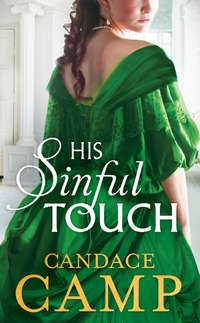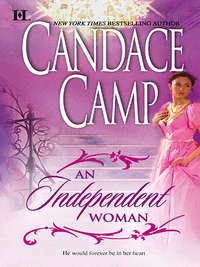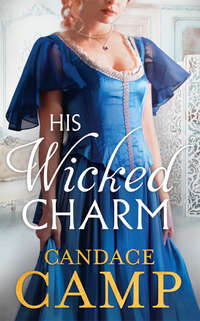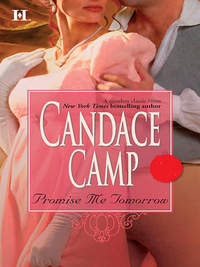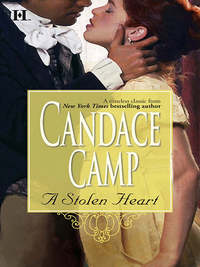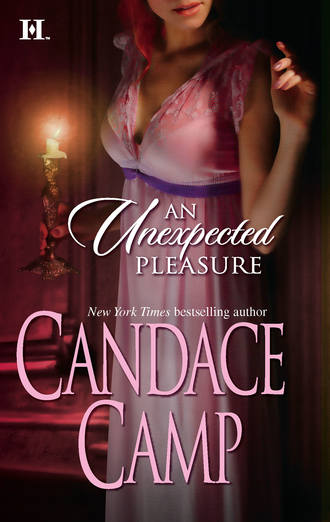
Полная версия
An Unexpected Pleasure
“No. You are more one to charge into things. You generally know what you want and go after it.”
He nodded. “Which is why I think I’m so at loose ends. I feel as if there is something missing. But I don’t know what it is. Something I should be doing? Some place I should go? I only know I want something else, something more.”
Kyria thought for a moment, then began hesitantly. “Well, perhaps, have you thought that you are at an age where you want to settle down? Mayhap what you are missing is a wife—a home and family.”
Theo let out a low groan. “That is certainly what they would all like to convince me of,” he said, jerking his head toward the mothers and chaperones massed along the wall, watching their charges dance. “I think I have been introduced to every mother of an eligible girl tonight. I can’t tell you how many have hinted that it’s time for me to settle down. It’s enough to make me run for cover. Are they always this voracious?”
Kyria chuckled, nodding. “Yes. There is nothing more dangerous than a mother out to make a good match for her daughter.”
“Aren’t these the very same women who have long complained that I am lacking in a proper sense of duty and consequence—always off gallivanting about the globe instead of staying here and preparing to take over the title? The ones who call us the ‘mad Morelands’?”
“Yes. But surely you must know that it does not matter how mad one is if one is going to be a duke someday. A title makes up for a great number of sins, and the higher the title, the more sins it obviates. And if you possess a great deal of wealth in addition, well, you could have two heads, and it wouldn’t matter.”
“What a cynic you are.”
“Only truthful.”
“It isn’t that I am against marriage,” Theo mused. “It is simply…well, I cannot envision tying myself to any of these girls, even one as lovely as Estelle Hopewell.”
“Estelle Hopewell! Good heavens, I should hope not. The girl hasn’t a thought in her head.”
“Do any of them? Perhaps it is just being under the watchful eye of their mamas, but every girl I spoke to tonight could do nothing but smile and agree with whatever I said. None of them seemed to have the slightest opinion of her own or the least interest in the world. And then there are eager widows like Lady Scarle, who frankly frightens me. Can you imagine any of them as part of our family?”
Kyria laughed. “Good Lord, no. Perhaps you need to find a country girl, as Reed did.”
He smiled. “I think Anna is rare, even in the country.”
“Yes. You are right. But I still hold hope for you,” Kyria told him. “I have seen one brother find a wonderful woman for a wife. I have the utmost confidence that you will be able to, as well. Just think, four of us ‘mad Morelands’ have managed to find our loves. Your day will come.”
“Will it?” A faint smile crossed Theo’s lips. “Perhaps you are right. Perhaps what I am waiting for is the perfect woman. But for now, I’ll just have to settle for a dance with the most beautiful woman in London.”
And with those words, he swept his sister out onto the floor.
MEGAN MULCAHEY STOOD at the window of the bedroom she shared with her sister Deirdre in the house her family had rented in London. With a sigh, she leaned her head against the cool pane of glass. It had taken her a month to get here, but now she wasn’t sure what to do.
No matter how hard she had tried, she had been unable to dissuade her father and sister from accompanying her to England. She would have preferred to investigate this matter by herself, without having to worry about them.
However, Frank Mulcahey had had an answering argument for every objection she raised. Her younger brothers, Sean and Robert, were quite capable of taking over the store, so his presence was not needed there. And she would need his help. Women rarely traveled alone, he pointed out; the entire journey would go more smoothly if she had a male escort. Moreover, there might be places where a woman could not even enter. Both those things were true, Megan knew, much as she hated to admit it. And she had no argument against his major point, which was that he had a right to be involved in bringing his son’s killer to justice.
Deirdre, despite her usually biddable nature and her general air of fragility that made everyone want to take care of her, had been just as stubborn. She had every bit as much reason as Megan to see their brother’s killer brought to justice, she reminded her sister, and she was, after all, the one to whom Dennis had come in a vision.
“Besides,” Deirdre had concluded, “if I don’t go with you, who’ll do the cooking and cleaning for you and Da?”
That had been a telling argument. Megan had never been one who liked doing domestic chores, and she had been quite content with their family arrangement for the last few years, in which she had gone out and worked each day as their father did, and Deirdre had taken over the household chores for the three of them.
Megan had expected her oldest sister, Mary Margaret, to agree with her that Frank and Deirdre should not go. The eldest of the Mulcahey children, Mary Margaret had helped their father raise all the younger children from the time she was twelve, and had always been the most responsible and levelheaded member of the family. Now married to a prosperous attorney and with three children of her own, Mary Margaret was the very picture of a conservative matron.
Much to Megan’s shock, Mary Margaret had agreed that Deirdre and their father should accompany Megan—or, as she put it, “go along to keep Megan out of trouble”—and had even offered to help pay for the trip.
So, finally, Megan had boarded the steamship to Southhampton with her father and Deirdre, and the three of them had arrived in London a few days ago. They had spent the first two days there finding a house and settling in. It had taken Megan another day to obtain Theo Moreland’s address—something that would have taken less time if they had known his father’s titled name.
This afternoon she had gone out to take a look at the house, just to get a sense of what she was facing. It was an imposing edifice, taking up all of a small city block, visible proof of the wealth and importance of the duke’s family, as well as of their longevity. They had been dukes since long before Europeans settled the New World, and they had been earls for a couple of hundred years before that. The house itself looked as if it might have been standing there since New York had been New Amsterdam.
However, far from being overwhelmed by the imposing house, Megan was perversely roused to an even greater determination to take down the duke’s son. She had taken on New York slumlords and powerful factory owners; she wasn’t about to retreat just because this family had a longer history than the others she had gone up against.
However, it did cause her to wonder how in the world she was going to get inside the mansion to investigate Theo Moreland.
Megan turned away from the window and walked over to the small dresser. Opening the top drawer, she reached inside it and pulled out a small pink case. It was her box of treasures, a childish pink music box with a rose on top and a little ballerina rising out of the middle of the rose. Once the ballerina had danced when the top was opened, but the mechanism that propelled her had long since died. Still, Megan had kept the box, treasuring it as a link to her mother, who had died when Megan was only seven years old.
She reached inside the box and pulled out a small piece of smooth glass. Although cylindrical in shape, it was not perfectly round, but had several flat, smooth sides.
Megan had never known exactly what it was. She had found it one day years ago—it had been, in fact, not long after Dennis had died, when she had been filled with sorrow. While cleaning her room, she had stumbled across this piece of glass in the dusty area beneath her bed. Pulling it out, she had held it up to the light. It was clear glass, a prism, she thought, with the flat sides, and shot through the middle were tiny strands of silver. She had no idea how it had gotten there; she had never seen it before, and Deirdre, who had slept in the same bedroom with her at that time, had denied all knowledge of it.
Megan had stuck it in her pocket, and had carried it with her, changing it from dress to dress. It had become something of a lucky charm for her. She had found it soothing to rub the flat sides as she thought or worried about something, as she had been in the habit of doing before with the religious medal she had worn much of her life.
That, an oval silver medallion with the raised portrait of the Virgin on it, had been a present from her mother on the occasion of Megan’s first communion, and it was all the more precious to her because her mother had died not long afterward. Megan had worn it always, putting it onto a longer chain as she grew older.
But a few weeks before she found the glass cylinder, she had lost the medallion. She was not sure what had happened to it. She had searched high and low, all over the house and even outside on the sidewalk and in her father’s grocery, but she had finally given up. The chain, she thought, must have broken, and it had slipped off without her even noticing. The odd piece of glass had seemed, somehow, a replacement.
Though Megan no longer carried the good luck charm with her, she had not wanted to leave it behind, despite the limited space in their trunks. In facing Theo Moreland, she thought, she would need all the luck she could get.
Absently, she rubbed the piece of glass for a moment, then shook off her thoughts, and put it away. She left the room and ran lightly down the stairs to find her sister.
Deirdre was sitting at the kitchen table, peeling potatoes for their supper that evening, and she smiled at Megan’s entrance. Megan sat down, and took up a knife and a potato to help her sister.
“Did you go to see Broughton House this afternoon?” Deirdre asked.
“Aye, I did, and it’s as grand as you might imagine.”
“Have you ever wondered about him?” Deirdre asked. “Theo Moreland, I mean.”
“Wondered? Wondered what?”
“You know, what he’s like. How he looks.”
“Oh, I can imagine that perfectly,” Megan responded. “He has English coloring, of course—blond hair and pale, lifeless skin—and doubtless a weak chin. He’ll have that supercilious expression, as if he looks down on the rest of the world with all the arrogance and contempt of a man who’s going to be the Duke of Broughton someday. His eyes are probably a cold blue.”
“Do you think he feels guilty over what he did to Dennis?”
Megan shrugged. “I don’t know. All I care about is that I make sure he pays for it till his dying day.”
“What are you going to do? I mean, how are you going to find out what happened? How are you going to prove it?” Deirdre asked.
“Well, it’s essential that I interview the other Englishmen who were there. Mr. Barchester, of course, and the other one. Julian Coffey.”
Their brother had set sail ten years ago on an expedition to the Amazon led by an American explorer named Griswold Eberhart. In the only letter they had received from Dennis after he left, he had told them that all the other men on the expedition had either fallen ill or given up by the time they had started up the Amazon, leaving only him and Captain Eberhart. Dennis had been exuberant, however, about their good fortune in coming upon a group from England, similarly depleted, with whom they had decided to join forces.
The English party had consisted of three men: Andrew Barchester, Julian Coffey and Theo Moreland. All of them were “excellent men,” he had written, especially Theo Moreland, who was only four years older than he and, according to Dennis, “great good fun.”
Some months later, Frank Mulcahey had received a short, formal note from Theo Moreland informing him of his son’s death and extending his sympathies. But it had been Andrew Barchester who had written to give them a longer account of Dennis’s death, revealing the unexpected news that Dennis had died at the hands of Theo Moreland himself.
“What he told Da wasn’t very specific,” Megan said now.
Deirdre nodded. “It’s been ten years, too. Da’s bound to have forgotten some things.”
“Unfortunately, I imagine Mr. Barchester probably has, too. Still, I have to talk to him.”
“What about Moreland?” Deirdre asked. “Are you going to question him?”
“I doubt he would even talk to me. He lives in a grand house, with a footman. I’m sure some unknown woman would not get past the door.”
“I’ve known you to lurk about until someone you want to interview comes outside and then accost him as he’s getting into his carriage,” Deirdre reminded her, her eyes twinkling.
Megan grinned, a dimple deepening in her cheek and her eyes glowing with mischief as she agreed, “’Tis true I’m not shy about throwing myself in his path. But for the moment, at least, I think it’s better not to do so. He’ll not admit that he killed a man. I need to use subterfuge here. I have to get inside his house and spy on him. If he took something from Dennis, as Da suspects, it’s most likely that he has it in that house. If I can track it down, it will give me proof—and will be something I can use as leverage. If I’m lucky, I’ll trick it out of him in some way.”
“How?”
Megan shrugged. “A number of men are talkative when they’re in their cups. I remember one fellow at Tammany Hall who let out quite a few secrets. He was a regular drinker at O’Reilly’s Tavern, and I was able to get hired on as a tavern maid.”
Deirdre shook her head in rueful admiration. “I remember the fit Da threw when he found out how you’d gotten that story.”
“You’d think I had taken up walking the streets, the way he carried on. I did nothing but serve drinks—and I showed no more bosom than many an evening gown I’ve seen on an elegant lady.”
“I don’t know how you have the nerve. I’d have died of embarrassment—not to mention being too scared to go in the door. Weren’t the men forward? Even, well, forceful?”
Megan shrugged. “Nothing I couldn’t handle. It helped having been around newspapermen for several years.”
Megan had had to fight for respect in her field—indeed, she had had to fight for everything she had gotten in her profession, from her first chance to write a story to her present job. She had known from the first that she could never reveal any weakness or others would seize upon it as proof that women were not competent to be reporters.
She had never told Deirdre about many of her experiences, knowing that they would have frightened her delicate sister—enough that Deirdre might even tell their father about them. And while Frank Mulcahey had been proud of her and ready to fight any man who dared suggest that his girl wasn’t as good a reporter as anyone, he had also bombarded her with constant worries and warnings about her safety. If he had heard about some of her more dangerous exploits, she wouldn’t have put it past him to come storming down to the newspaper to have it out with the editor for putting her in harm’s way.
“But that sort of thing won’t work this time,” Megan told her sister now. “I have no idea what tavern Theo Moreland frequents—if he even goes to any place so plebeian. He probably drinks at some gentleman’s club, with no women allowed inside. What I really need is to get inside the house. So I’m going to apply for a position as a servant there.”
Deirdre dropped the potato she had been peeling and stared at her sister, then burst into a merry peal of laughter.
“What’s so funny?” Megan asked indignantly. “It’s a perfectly good idea.”
“You? As a maid? Or maybe a cook?” Deirdre said after a moment, when she finally paused in her laughter and wiped away the tears her laughter had brought. “I should like to see that.”
“You think I couldn’t clean or cook?” Megan asked, putting her fists on her hips. “It’s not as if I haven’t done such things. I cooked and cleaned enough when you were growing up.”
Deirdre tried, not entirely successfully, to compress her lips into a straight line. “Perhaps—when Mary Margaret was cracking the whip. But that has been years.”
“I haven’t forgotten how. I’m sitting here paring potatoes, aren’t I?”
“Yes. But look at the pile of peelings in front of you.” Deirdre gestured toward the newspaper spread on the table between them. In front of Megan, there was a handful of peelings. Across the table, before Deirdre, lay a mound three times that size.
“You started before I did,” Megan pointed out. At her sister’s look, she went on, “Oh, all right, I’m not as fast as you. But they won’t know that.”
“You’d be fired in two days. For answering back, if nothing else. I know you, Megan Mulcahey, and taking orders won’t sit well with you.”
“You’re right about that. But I will simply have to accept it. I don’t see any other way to get into the house. Cleaning rooms will give me a perfect opportunity to look for something that Moreland might have stolen from Dennis.” She paused and looked at her sister a little tentatively. “Umm, I wonder—about those things that Dennis, uh, was looking for…”
Deirdre sighed. “No, I don’t know anything more about them. I haven’t heard or seen anything from Dennis since that night. I have no idea what he wants back so badly.” She paused, then went on, “I know you don’t really believe that Dennis came to me.”
“I don’t think you’re fibbing,” Megan assured her hastily. “I know you believe Dennis appeared to you—in actuality or a dream or something. I just find it—well, it’s—”
“I know. It’s much too otherworldly for you. You believe in tangible things, and there’s nothing wrong with that. You deal in facts, in the practical world. I know that. But, Megan…” Deirdre leaned forward, her brow wrinkled earnestly. “I’m not crazy.”
“Deirdre, I never meant…!” Megan cried, reaching her hand to her sister.
“No, I know you don’t think I’m insane. But there would be those who did if they knew some of the things I’ve seen and heard. But I know what I saw. It was Dennis, and he spoke to me—whether he was right there in the room with me or in a dream, I’m not entirely sure. But I know it was he, and I know he was desperate. He wants whatever was taken from him. It means a great deal to him. And he came to us for help.”
“I don’t know what to think,” Megan told her honestly. “’Tis hard for me to believe in such things, but I know you are neither crazy nor a liar, and as long as there is any chance that Dennis did come back from the grave, asking for our help, I shall strive to do what he wants. And I’ll take any help you can give me, even if it does come to you in a dream.”
“I only wish I could help you.” Deirdre sighed. “I wish this sort of thing was not always so uncertain. Every night when I go to bed, I pray that I will hear from him again. That he will tell us how to help him.”
Megan hardly knew how to respond to her sister.
Deirdre’s unquestioning faith in her visions amazed her and left her feeling, frankly, a little envious. It must be comforting, she thought, to be without doubt or questions. It was not a state, she feared, that she would ever be in. Her entire life was built upon questions, it seemed.
They continued to talk as they finished peeling the potatoes, and afterward Deirdre put the potatoes on to boil and checked the roast in the oven as she continued to put the evening meal together. Megan went upstairs to wash up before supper, then sat down to record her notes about Broughton House in a small notebook.
It was her custom on any story to keep notes this way. It helped her to plan her actions, she found, as well as think about the story in depth, and it also kept her quotes as accurate as possible. Over the course of the years, it had become an ingrained habit.
She only wished she had more facts to go on.
Finally she went downstairs to supper, finding, to her surprise, that her father had not come home yet. After waiting for him for some time, she and Deirdre sat down to eat, glancing now and again at the clock in the dining room, then at each other, their worry palpable.
He still had not arrived by the time they were through with their meal, and Megan helped Deirdre wash and dry the dishes as they talked, their vague concern growing.
It was with a great deal of relief that they heard the front door open a few minutes later, and then their father strolled in, whistling a tune.
“Good evenin’ to you,” Frank Mulcahey said, grinning and taking off his cap.
“Where have you been?” Megan asked. “We’ve been worried about you.”
“Worried? No need for that. I’ve been out investigating.”
“Investigating?” Megan cocked an eyebrow at her father as he drew closer, though she could not suppress a smile. “Is that what you call it?” She made a show of sniffing the air. “Smells more like ale to me.”
“Aye, well, that was where I was investigating,” he replied. “Is there a bite of supper left for your poor old da? I’m famished.”
“So you’ve been investigating a tavern?” Megan asked teasingly as they sat down at the kitchen table and Deirdre took out the food from the oven, where she had been keeping it warm for their father.
“Nay, but that’s where I made me inquiries.” Frank winked at his daughter, looking pleased with himself.
Megan straightened, intrigued. “What do you mean? What inquiries?”
“I’ve been thinking about how you’re to get inside that great house to expose the villain.” He shook his head. “I went to see it, and it’s an imposing looking place.”
“You’re right about that,” Megan agreed. “I was telling Deirdre that I think my best chance is to get hired on there as a servant. It’s such a grand house, they must need a lot of servants. I would think there are openings pretty often.”
“And I told her she wouldn’t last a week,” Deirdre put in, sitting down across from Megan and their father.
Megan grimaced. “I could manage.”
“That’s if they’d even hire you in the first place. You don’t look like a servant. You’re much too attractive for one thing, and you haven’t a servant’s demeanor,” Deirdre went on.
“I can put on an act,” Megan said. “I’ll wear the drabbest dress I have.”
“Ah, but nothin’ can hide those sparkling eyes of yours,” her father said, reaching out to pat her cheek fondly. “Don’t worry, lass, I’ve a better idea for you.”
“What?” Megan and Deirdre chorused.
“Well, I went to all the taverns last night that were close to Broughton House, and again this afternoon, and it happens I hit gold this afternoon. There’s a footman from the place comes in for a wee nip every evening if he gets the chance to slip away. Name’s Paul, and our Paul’s an informative lad.”
“Really? What did you find out?” Megan leaned forward.
“First of all, I found out that Lord Raine is in residence at Broughton House.”
“Lord Raine? Who’s that?”
“Seems that’s Himself.”
“I thought his name was Moreland,” Megan said.
“Aye, well, ’tis, except it seems he gets a title, see, because he’s next in line to be the Duke of Broughton. While his da’s alive, he’s another sort of lord. The Marquess of Raine. Don’t ask me to explain it. It took me a bit even to figure out that our Paul was talkin’ about the very villain I was interested in. Anyway, he’s at home, which is our good luck—for I’ll tell you, girl, I was worried we might get here and find that he was off in Timbuktu or some such place.”
“Yes, it concerned me somewhat, too.”
“But according to the gossip, the man’s not looking to go off on one of his adventures for a few months yet.”
“That’s good.”
“Even better is what else he told me. Seems they’re in terrible need of a tutor for two of the boys of the family.”
“A teacher?” Megan looked at him, puzzled. “Da! Are you saying I should go there as a tutor? You can’t be serious!”
“Why not? You’ve a much better chance of convincing them you’re a teacher than a scrub maid.”
“You were always first in your class,” Deirdre pointed out, adding, “Well, I mean, your grades were. It was just because you kept getting in trouble with the nuns that kept you from taking honors.”


